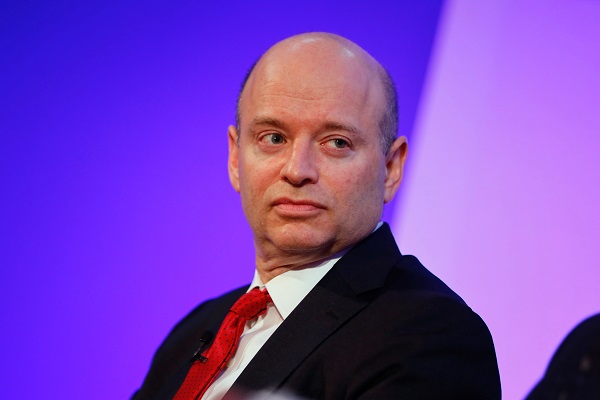Your vote counts: revolts at BAT, LSE and Glencore
Some of the country’s biggest companies will get a rough ride from shareholders. We explain why.
23rd April 2021 09:03
by Graeme Evans from interactive investor
Some of the country’s biggest companies will get a rough ride from shareholders. We explain why.

Shareholders have laid down a marker on boardroom pay by staging big protest votes against Foxtons (LSE:FOXT) and Domino's Pizza (LSE:DOM) at the start of the AGM season.
Almost 40% of votes went against the Foxtons remuneration report on Thursday. That’s amid criticism of the estate agency group's decision to pay bonuses to CEO Nic Budden and two other directors in a year when it utilised government support to pay wages for furloughed staff.
On the same day, 35% of votes were against the Domino's Pizza report as shareholders kicked back at the pay of new CEO Dominic Paul being 41% more than his predecessor.
The scale of their AGM votes means both companies will have to consult with shareholders on the reasons for the protests and report back to the City later in the year.
- Six things you must do before buying any share
- Make a difference and use your vote this AGM season
- Open an ISA with interactive investor. Simply click here to find out how.
Further dissent is possible at AGMs next week after voting advisory groups highlighted issues around pay at London Stock Exchange (LSE:LSEG), Glencore (LSE:GLEN) and British American Tobacco (LSE:BATS).
Other meetings for shareholders to keep an eye out for in the coming week include those of FTSE 100-listed Persimmon (LSE:PSN) on Wednesday, Schroders (LSE:SDR) on Thursday and Admiral (LSE:ADM) and Pearson (LSE:PSON) on Friday. FTSE 250-listed ITV (LSE:ITV) also holds its AGM on Thursday.
Customers of interactive investor can cast their votes by accessing the Voting Mailbox in their online account. There, they will find notifications for all the UK-listed companies they own shares in, with links to view an event or place a vote.
British American Tobacco (Wednesday 28 April)
The tobacco giant was on the receiving end of a shareholder revolt at last year's AGM after 38% of votes were cast against the company's annual remuneration report.
A 9.5% pay rise for chief executive Jack Bowles was the likely cause of the protest vote, even though BAT noted at the time that his pay package was still 15% lower than his predecessor.
This year's AGM is likely to be just as challenging after voting advisory groups Glass Lewis and Institutional Shareholder Services (ISS) recommended another vote against the report.
While Bowles' salary went up another 3% in line with the rest of the workforce, chief financial officer Tadeu Marroco got an additional 4% on top of this to reflect the expansion of his role.
Glass Lewis is also unhappy that the company did not make a more comprehensive appraisal of shareholder concerns following the significant protest vote last year.
- Small shareholders want a seat at the table as IPO listings take off
- Conditions are ripe for an ESG retail shareholder spring
On Wednesday, the company answered pre-submitted questions from shareholders in a video presentation hosted by chairman Richard Burrows.
In response to questions on executive pay, he said the company regularly consulted with shareholders when deciding on salary increases and remuneration policies.
He said: “When management have delivered on their commitments, it is right that this is reflected appropriately in the performance assessment of the group’s incentive plans versus established metrics.”
The total pay package for Bowles amounted to more than £5 million in a year when adjusted profits grew 4.8% and the dividend per share rose 2.5% to 215.6p. The base salary of £1.3 million was accompanied by short-term incentives of £2.2 million and longer-term awards worth £786,000.
London Stock Exchange (Wednesday 28 April)

A 25% pay rise for chief executive David Schwimmer (pictured above) has attracted criticism after the new arrangement took his base salary to £1 million.
LSE said the increase reflected the company being “significantly larger, more international and complex” following January's acquisition of Refinitiv. The deal made LSE the largest publicly-listed financial markets infrastructure company by revenue globally.
But voting advisory body Institutional Shareholder Services said the appropriateness and timing of February's salary increase is not considered “sufficiently merited“.
It highlighted that the Refinitiv acquisition is not yet fully integrated, while LSE revealed recently that doing so was proving to be more costly than originally anticipated.
- Wild’s Winter Portfolios 2020: LSE blamed for bad month
- Nick Train calls for patience as four share favourites slump
ISS is recommending shareholders vote against the company's remuneration report.
While LSE admits that the increase is large in absolute terms, it said Schwimmer's salary was favourable for a company that is now among the 15 largest in the FTSE, having grown its share price by 16% in 2020 and dividend by 7% to 75p a share. It noted that Schwimmer's minimum shareholding requirement had increased from 300% to 400% of base salary.
LSE's remuneration report has the support of Glass Lewis, which said it did not believe the increase in salary warranted shareholder action at this time.
Schwimmer's total remuneration for 2020 was £6.88 million and included an annual bonus of £1.37 million, half of which was paid in shares and deferred for three years. Most of the rest came from the vesting of longer-term share awards.
NatWest (Wednesday 28 April)
The re-appointment of EY as auditor at NatWest Group (LSE:NWG) is targeted by the investment advisory service PIRC as part of its wider campaign urging shareholders to vote against a number of audit firms in the current AGM season.
PIRC's stance reflects its belief that EY, PwC, KPMG and Grant Thornton have not gone far enough with their undertakings in relation to the detection of corporate fraud. It highlights an “expectations gap” between existing accounting standards for auditors to meet and the levels that the courts and the public expect.
The advisory body has reviewed responses to the issue from the largest accounting businesses, resulting in the decision not to support the re-election of the four firms.
PIRC has recommended shareholders vote in favour of the company's remuneration report, which showed chief executive Alison Rose received total fixed pay of £1.9 million.
This included a base salary of £1.1 million and a further fixed share allowance worth £674,000 after Rose agreed that 25% should be donated to Covid charities. There was no annual bonus, but a long-term incentive award from 2018 took the total remuneration to £2.6 million. Rose was praised in the annual report for her “highly impressive” first year as CEO.
The company did pay bonuses to the wider workforce, but the total figure of £206 million was down 33% on a year earlier and the lowest since the financial crisis resulted in state ownership.
The payments were focused on revenue-generating business units and the staff who made working from home possible during the pandemic. Immediate cash bonuses were limited to £2,000.
The company's pay policy was renewed at last year's AGM, including the provision for nearly 70% of expected remuneration for executive directors to be delivered in shares. The AGM will be the first for the company since its name change from Royal Bank of Scotland last summer.
Glencore (Thursday 29 April)
The pay of Gary Nagle, who becomes CEO in July after 20 years with the commodities business, has proved contentious due to his base salary of $1.8 million and opportunity to land as much as $10.4 million in a year.
The total remuneration package includes an annual bonus of up to two and a half times his salary and long-term incentives worth up to 225% per year.
Finding an appropriate level for Nagle's pay has been complicated by current boss Ivan Glasenberg receiving an unchanged salary of $1.5 million since the company joined the stock market in 2011. He's also waived the right to bonuses, given that his ownership of 9% of Glencore has yielded hundreds of millions of dollars in dividends.
- At last, FTSE 100 passes 7,000 again
- Your vote counts: this is a big step forward for shareholder democracy
The company only renewed its triennial remuneration policy at last year's AGM but is having to do so again to reflect the newly-devised pay structure. Glass Lewis has recommended shareholders vote against the policy, arguing that the package on offer for Nagle is excessive for a newly appointed CEO with no previous experience of running a publicly listed company.
Glencore notes that approximately 60% of the total reward opportunity is delivered in shares and 40% is subject to a holding requirement until two years post-employment, making Nagle's pay directly aligned with the long-term interests of shareholders.
Fellow voting advisory group ISS agrees that the new CEO is being incentivised to deliver long-term value, but warned over the potential for the overall package to “deliver high pay outcomes even in periods of poor performance”. It recommends a vote against the pay policy.
Glencore will also hold an advisory vote at its AGM seeking approval from shareholders for its climate action transition plan.
It has committed to reduce its total emissions footprint by 40% by 2035 on 2019 levels and to achieve a net zero footprint by 2050, putting the company on a trajectory aligned with the Paris Agreement.
These articles are provided for information purposes only. Occasionally, an opinion about whether to buy or sell a specific investment may be provided by third parties. The content is not intended to be a personal recommendation to buy or sell any financial instrument or product, or to adopt any investment strategy as it is not provided based on an assessment of your investing knowledge and experience, your financial situation or your investment objectives. The value of your investments, and the income derived from them, may go down as well as up. You may not get back all the money that you invest. The investments referred to in this article may not be suitable for all investors, and if in doubt, an investor should seek advice from a qualified investment adviser.
Full performance can be found on the company or index summary page on the interactive investor website. Simply click on the company's or index name highlighted in the article.